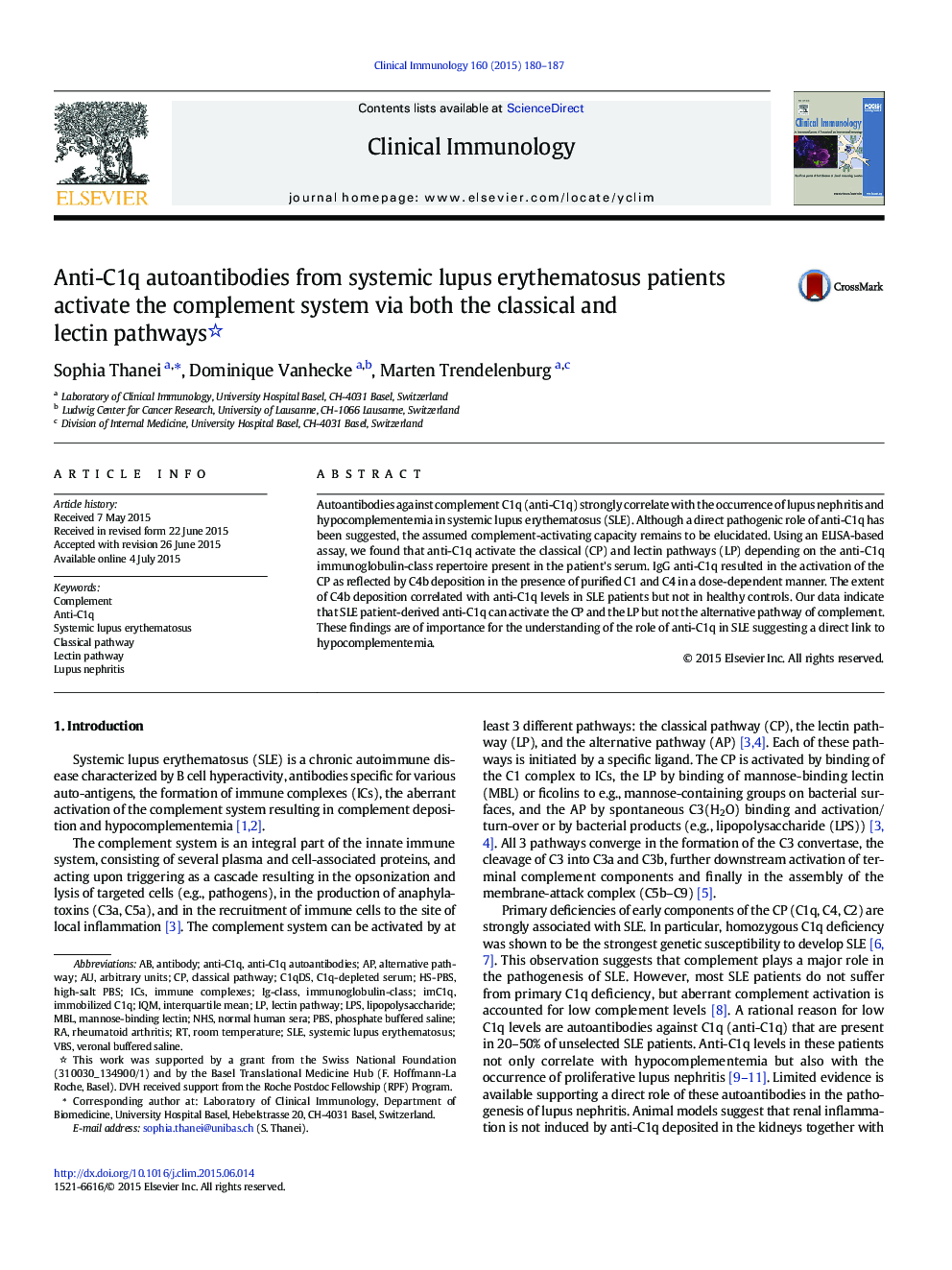| کد مقاله | کد نشریه | سال انتشار | مقاله انگلیسی | نسخه تمام متن |
|---|---|---|---|---|
| 6087211 | 1589428 | 2015 | 8 صفحه PDF | دانلود رایگان |

- We developed a specific assay to study anti-C1q-mediated complement activation.
- Anti-C1q activate the classical and lectin pathways depending on the Ig-class.
- Anti-C1q don't seem to directly activate the alternative pathway of complement.
- Activation of the classical pathway correlates with IgG anti-C1q levels.
Autoantibodies against complement C1q (anti-C1q) strongly correlate with the occurrence of lupus nephritis and hypocomplementemia in systemic lupus erythematosus (SLE). Although a direct pathogenic role of anti-C1q has been suggested, the assumed complement-activating capacity remains to be elucidated. Using an ELISA-based assay, we found that anti-C1q activate the classical (CP) and lectin pathways (LP) depending on the anti-C1q immunoglobulin-class repertoire present in the patient's serum. IgG anti-C1q resulted in the activation of the CP as reflected by C4b deposition in the presence of purified C1 and C4 in a dose-dependent manner. The extent of C4b deposition correlated with anti-C1q levels in SLE patients but not in healthy controls. Our data indicate that SLE patient-derived anti-C1q can activate the CP and the LP but not the alternative pathway of complement. These findings are of importance for the understanding of the role of anti-C1q in SLE suggesting a direct link to hypocomplementemia.
Journal: Clinical Immunology - Volume 160, Issue 2, October 2015, Pages 180-187